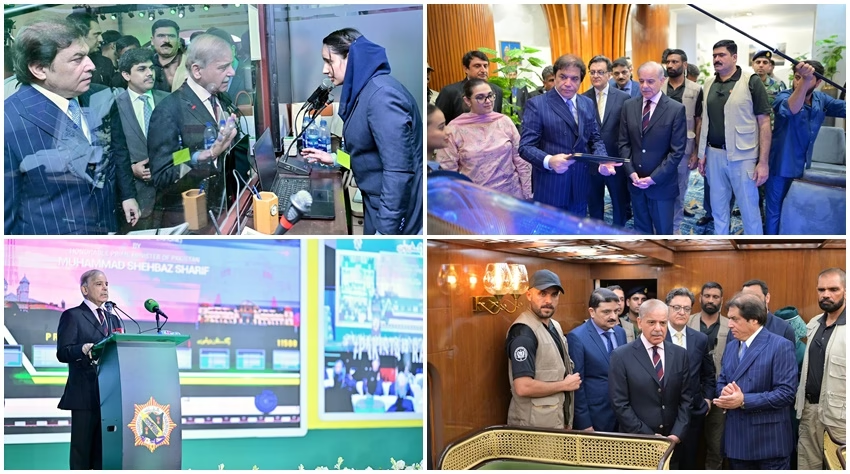In the quiet, early hours of Tuesday morning, as the sprawling city of Karachi slept, a devastating act of violence shattered a family in the historic neighborhood of Lyari. Bakhtawar, a 40-year-old mother, was shot and killed inside her own home. She leaves behind seven children, now without their mother.
The incident took place around 1:30 am in the Miranaka area of Chakiwara, a densely populated part of Lyari. According to police, Bakhtawar was asleep in her home near Koyla Godam on Street-7 when her husband allegedly fired four shots from a pistol.
Three bullets struck her, and she died instantly at the scene. This was not a random act of violence; police are investigating it as a so-called “honour” killing, a crime that continues to claim the lives of hundreds of women in Pakistan each year.
The alleged reason for this brutal act highlights a chilling aspect of patriarchal control. It wasn’t about defying a marriage arrangement or a public scandal, which are often associated with such killings. Instead, the motive appears to stem from the simple act of a woman using her phone, revealing a form of control that polices the most personal aspects of a woman’s life within the supposed safety of her own home.
“She Didn’t Heed My Warnings”: Police Detail Alleged ‘Honour’ Motive
Police responded swiftly, arresting the husband at the scene. The suspect, a labourer who originally hails from Mansehra, did not resist arrest. Chakiwara Station House Officer (SHO) Sajid Dharejo confirmed the details to the media.
The Police Officer Stated:
“The suspect was arrested, and the pistol used in the murder was recovered.”
During the initial investigation, the husband reportedly confessed, providing a motive that police have categorized as related to “honour.” According to SHO Dharejo, the husband told investigators that his wife used to talk with a man on her cell phone, and despite his warnings, she continued.
This claim, that a private conversation could be justification for murder, exposes the hollow logic behind the term ‘honour’ killing. Following the incident, Bakhtawar’s body was taken to Dr Ruth Pfau Civil Hospital Karachi for the required legal and medical formalities.
The by-the-book nature of this arrest is noteworthy, especially given the location. Lyari has a complex and often violent history with law enforcement, marked by large-scale operations against powerful gangs. Furthermore, Karachi’s police force has faced intense public scrutiny in the past for controversial “fake encounters,” most notably in the 2018 killing of Naqeebullah Mehsud, which led to nationwide protests.
The straightforward arrest in Bakhtawar’s case, without any reports of a shootout, may suggest that past campaigns for police accountability are having some effect on day-to-day procedures. However, it also raises the question of whether justice will be served in a system where such crimes are tragically common.
A National Scourge: Why Pakistan’s Laws Fail to Stop ‘Honour’ Killings
Bakhtawar’s death is not an isolated tragedy but a symptom of a deep-rooted national crisis. So-called “honour” killings, known locally by terms like karo-kari, are murders committed by family members, overwhelmingly against women, for actions perceived to have brought shame upon the family. These actions can range from choosing one’s own husband to, as alleged in this case, simply having a private conversation.
In 2016, Pakistan passed a landmark anti-honour killing law aimed at closing a critical legal loophole. Previously, under Islamic “blood money” laws, perpetrators could be pardoned by the victim’s family and walk free. Since the killer is often a close relative, these pardons were common, ensuring impunity. The 2016 law mandates a life sentence, even if a pardon is granted.
Yet, the killings persist. The gap between law and enforcement remains vast, hindered by powerful cultural norms, social pressure on families not to report crimes, and weak implementation of the law, particularly in conservative communities. The statistics paint a grim picture of this ongoing failure.
| Year/Period | Reported Cases | Source |
| 2023 | 226 | Al Jazeera / SSDO |
| Jan-Nov 2024 | 346 | Human Rights Commission of Pakistan (HRCP) |
| 2024 (Full Year) | 405+ | The Guardian / HRCP |
Human rights defenders believe the actual number is far higher, potentially reaching 1,000 women murdered annually, as many cases go unreported in rural areas and tight-knit urban communities. Recent months have seen other horrific cases capture public attention, including the murder of a couple in Balochistan that went viral after being filmed, and the killing of female social media personalities for being “too visible” online.
A City of Contradictions: Violence and Justice in Lyari
The murder taking place in Lyari adds another layer of complexity. Far from being a remote village where “tribal customs” are assumed to reign, Lyari is one of Karachi’s oldest and most vibrant neighborhoods.
It is a hub of political activism and famously the heart of football in Pakistan. However, it has also been a battleground for violent gang wars and the site of massive police and paramilitary operations aimed at restoring state control.
This environment, where violence has often been a tool for control by both criminals and the state, can create a permissive atmosphere for other forms of brutality. Bakhtawar’s death is a tragic example of how patriarchal violence intersects with this landscape.
Experts note that as people migrate to cities, they often bring conservative values with them, creating urban pockets where traditional forms of justice are practiced in parallel with state law. This murder is not a “rural” problem that happened in a city; it is a distinctly urban tragedy fueled by mindsets that refuse to die.
Bringing these stories to light often comes at a great personal cost. Journalists in Karachi who cover crime, corruption, and human rights abuses face intimidation, legal threats, and physical violence, making the work of local reporters who documented this case all the more critical.
Beyond Hashtags: The Unfinished Fight for Bakhtawar and Pakistan’s Daughters
In an age of digital outrage, justice can sometimes feel dependent on virality. Recent ‘honour’ killings in Pakistan only received widespread condemnation and swift official action after graphic videos were shared and hashtags like #JusticeForCouple began trending on social media.
This raises a deeply uncomfortable question: What about the silent victims? What about Bakhtawar, whose death did not come with a viral video but is no less horrific?
Her story is a stark reminder that for every case that sparks public fury, countless others occur in the shadows. The seven children she left behind are the unseen victims, their lives forever altered by an act of violence rooted in the belief that a woman is property.
While police have made an arrest, the fight for true justice for Bakhtawar is part of a much larger struggle. It is a fight against a societal mindset that devalues women’s lives and a push for a legal system that not only passes laws but rigorously enforces them. The ultimate honour would be to build a society where no woman has to pay for her autonomy with her life.










